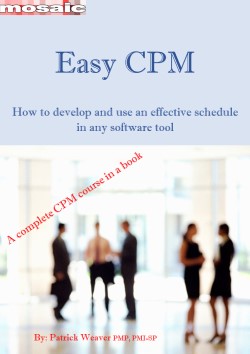Location:
PMKI > IT
& Construction Industries > Dispute
Management.


- Dealing with poor performance
- Contract & Commercial
Management
- Dispute Management
- General Concepts for
Minimizing Disputes
- Managing Contract
Disputes
- Defective Work Claims
- Delay and Disruption
Claims
- Legal Dispute
Resolution Processes
- Useful External Web-links &
Resources.
Other related sections of the PMKI:
- Claims and Forensic
Analysis
- ADR and Dispute Management
Services
- Basic Contract Law
& Procurement
- Inter-personal
Conflict Management
 At
all stages, of dispute management, procedural fairness is
vital.
At
all stages, of dispute management, procedural fairness is
vital.
Art: Fairs Fair -
Process & Procedural Fairness. When you
have to deliver bad news to a person, the processes you
use are at least as important as the decision you have
made.
Managing a contractor (or subcontractor) that is failing to perform raises some interesting legal and contractual challenges. My suggestions are:
What not to do: Do not get directly involved in 'helping' the contractor plan or manage its work, if you do you will accept some responsibility for future performance. But do be responsive to sensible suggestions to overcome issues.
What to do:
 One of the best tools for avoiding poor performance and
managing issues proactively to avoid claims is a
competently developed and maintained critical path (CPM)
schedule. Easy CPM
is a course-in-a-book that provides practical training and
guidance to individuals and organizations involved in
developing or using CPM schedules based on the Critical
Path Method (CPM). It is designed to act as both a
reference, and practice guide, for people implementing CPM
scheduling after they have learned to use the CPM
scheduling software of their choice.
One of the best tools for avoiding poor performance and
managing issues proactively to avoid claims is a
competently developed and maintained critical path (CPM)
schedule. Easy CPM
is a course-in-a-book that provides practical training and
guidance to individuals and organizations involved in
developing or using CPM schedules based on the Critical
Path Method (CPM). It is designed to act as both a
reference, and practice guide, for people implementing CPM
scheduling after they have learned to use the CPM
scheduling software of their choice.
 Preventing
disputes is better than resolving disputes. The
introduction of Adjudication in the UK and Australia has
pressurized project administration, causing a radical
re-think of many traditional project management and
contract management processes. The Acts apply to every
business involved in Building and Construction including
contractors, subcontractors, clients, suppliers and
professional firms. Construction industry professionals
need to address and manage the impact of the Acts on
projects in which they are involved - See
Adjudication below.
Preventing
disputes is better than resolving disputes. The
introduction of Adjudication in the UK and Australia has
pressurized project administration, causing a radical
re-think of many traditional project management and
contract management processes. The Acts apply to every
business involved in Building and Construction including
contractors, subcontractors, clients, suppliers and
professional firms. Construction industry professionals
need to address and manage the impact of the Acts on
projects in which they are involved - See
Adjudication below.
Effective contract management requires:
 General
Concepts for Minimizing Disputes
General
Concepts for Minimizing Disputes WP: Issues Management. Before declaring something a dispute, consider managing it as an ‘issue’, at least to begin with. Defining a problem an ‘issue’ rather than a ‘dispute’ means you can apply normal project management techniques to manage the problem.
WP: Negotiation & Mediation. Increases the formality and introduces ‘sides’ into the process. The negotiation process remains totally within the control of the parties and may be assisted by a trained mediator.
WP: Win-Win Negotiations. A win-win approach to negotiation can deliver higher value at lower risk than a win-lose scenario.
Blg: This post is Without Prejudice! Without prejudice communications only apply to legal proceedings (court cases and Arbitration), to prevent the admission of evidence that was offered by one party to the other on a without prejudice basis. Which means, if you want to have a meeting or make an offer that is only valid if it leads to a settlement, or other agreed outcome, the different processes discussed in this post are needed.
Click through to our procurement management page for more
on:
- Basic contract law
- Common forms of
contract
- The Law of
Contract
WP: Dispute Management in Contracts. An overview of the escalating options for managing disputes from problem solving and negotiation through to litigation and consequences of the choices made to resolve the dispute.
Blg: Using a Risk Management approach for Assessing Claims. Balancing the inevitable costs of pursuing a claim against the possible gains is a difficult but necessary decision before moving forward.
WP: Contract Termination. When all else fails contract termination may be the only option; but beware - terminating a contract is a high risk activity. This White Paper takes a layman's look at the risks and issues.
CRC For Construction Innovation - The CRC-CI
website closed 30th March 2010, Documents from the CRC-I
project, a Guide to Leading Practice for Dispute
Avoidance and Resolution are available for
download:
- Guide
to Leading Practice for Dispute Avoidance and Resolution
- Guide
to Leading Practice for Dispute Avoidance and
Resolution: An overview
- Dispute
Avoidance and Resolution (literature review)
- Causal
Ascription of Disputes (report)
- Strategies
for Dispute Avoidance (report)
- An exploratory study of project dispute
pathogens (journal article)
- Causal Modelling of Construction
Disputes (refereed conference paper)
A defective work claims is the most common claim made by building owners against their building or construction contractor. The cost and consequences associated with resolving a defective work claim can be minimized if the contract is prepared for each individual project setting out effective and feasible methods of risk allocation together with clear obligations in relation to standards, quality and the reliance placed on the contractor's skill and expertise.
PP: Defective Work
Claims. This paper canvases both contractual
and common law aspects of making and defending claims for
defective work in Australia.
Prs: Defective Work
Claims. Download the shorter PowerPoint
presentation
The techniques needed for making and defending delay and
disruption claims are
Mosaic's Claims and Forensic
Analysis page
- Forensic analysis
and reporting
- Assessing
Delay and Disruption
- Concurrent
and Parallel Delays
- Referenced
Court Judgements
- Claims & Expert
Witness

Preventing disputes is better than resolving disputes. Discussion, problem solving, or mediation offer better options for dispute resolution, but need both parties to cooperate. The legal options below offer finality and enforcement, but you may not liek the answer the person making the decision comes to.
WP: Dispute Management in Contracts. An overview of the escalating options for managing disputes from problem solving and negotiation through mediation, expert determination and arbitration, to litigation and consequences of the choices made to resolve the dispute.
Art: Delivering Expert Evidence is Becoming Harder. This article discusses a number of recent judgements that seem to have re-framed expert evidence, 'the court is not compelled to choose only between the rival approaches and analyses of the experts. Ultimately it must be for the court to decide as a matter of fact what [occurred]. '...there is an overriding objective of ensuring that the conclusions derived from that analysis are sound from a common-sense perspective'.
Adjudication
The introduction of Adjudication in the UK and Australia
has pressurized project administration, causing a radical
re-think of many traditional project management and
contract management processes. The Acts apply to every
business involved in Building and Construction including
contractors, subcontractors, clients, suppliers and
professional firms. Construction industry professionals
need to address and manage the impact of the Acts on
projects in which they are involved. For examples, see the
Casewatch series
on Adjudication.
Arbitration
Arbitration is used to solve issues involving more complex evidence. Typically, there is evidence provided by both parties, the parties respond to the other side’s submissions and then the Arbitrator issues a determination. Arbitration determinations are enforceable through the courts. Unlike sovereign law which can usually only be enforced in the country where the court is constituted, international arbitration awards can be enforced in most countries. Arbitrators are bound by the concept of ‘natural justice’ and are subject to a limited oversight by the court systems to ensure due process, but once an Arbitrator is appointed by the parties, the Arbitrator will determine the solution and the outcome of the dispute. For examples, see the Casewatch series on Arbitration.
Litigation
Involves formal processes conducted in a court of law with the full power of the state available to enforce conformance with the trial process and the determination of the court. The resort to law should be seen as the final option when all else has failed. Unlike all of the preceding options, court proceedings are public and open to scrutiny.
Doyles Construction Lawyers - Australia’s largest specialist construction law firm: https://doylesconstructionlawyers.com/
Resolution Institute (formally IAMA and LEADR) - Australia's largest, independent and most experienced arbitration and mediation service: https://www.resolution.institute/
The Society of Construction Law (UK). The society works to promote education, study and research in the field of construction law and related subjects (including adr, arbitration and adjudication), both in the UK and overseas: https://www.scl.org.uk/
Society of Construction Law Australia. A single national organization of members, at all stages of their professional career, who share an interest in construction law: https://www.scl.org.au/
The Chartered Institute of Building (CIOB). the world's largest and most influential professional body for construction management and leadership: https://www.ciob.org/about
Constructing Excellence - CE (UK) aims to achieve a step change in construction productivity by tackling the market failures and promoting continuous improvement: http://www.constructingexcellence.org.uk
World Commerce & Contracting - The International Association for Contract & Commercial Management world-class standards in contracting and relationship management process and skills: https://www.worldcc.com/
ICPMA - The International Construction Project Management Association (ICPMA) is an international umbrella association focusing on international Knowledge Management, the General Annual Meeting, working groups and publications: http://www.icpma.net
Major Projects Association (UK). Brings together learning, innovation and good practice from many different sources such as learning legacies by major projects, other related knowledge hubs and websites: https://majorprojects.org/